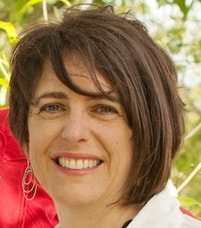|
Dear valued proofreaders and editors, Louise has presented a wide range of business and editing advice here on the Proofreader's Parlour. Some of it I refer to regularly. What I hope to contribute is an understanding of what developmental editors (macro level/substantive changes) do in the school market. That means the textbooks, handouts, exams and such that kids get day to day at school. First, I hope this insight will be interesting. Second, I hope it will alert everyone down the line in the publishing process to the intricate web of concerns that are woven into today's textbooks. Grab a cuppa and listen in. Most of the resources I work on are for the K–12 school market in Canada and the USA. That covers all schooling from the first days until university or college. Chemistry and physics topics make up most of my work; math comes after that. Though I am a certified copy-editor, substantive editing is so time consuming that it makes up the majority of my practice. That explains my POV. When material finally makes it to the copy-editor (and afterward, to the proofreader) it has been massaged to an astounding extent. Less of the author’s voice is left in these materials than in most others. The editors have taken into account:
That's off the top of my head. There's definitely more. Any changes I suggest had better move the manuscript closer to those goals. Reading level is high on my list of concerns when copy-editing. Because I edit tough subjects, it's important that the language not get in the way of the learning. Often we are aiming one full grade level below the audience. I have edited chemistry to the cadence of Green Eggs and Ham, and physics to the rhythm of Sherlock Holmes. Occasionally, another copy editor will “smooth” the language of a piece, raising the reading level eight years above the education level of the audience. There was a reason it was written that way. The style sheet in school products reflects current trends in education, propriety, and avoiding any possible sense of moral, ethical, or legal infraction. I have removed the image of a sculptor because he was working on a backside, I've struggled with wording about erecting structures, and I've flipped the terms Aboriginal with Indigenous because none of the consultants seemed to agree. I have also taken indigo out of the rainbow, and mourned the loss of Pluto’s planet designation along with the rest of my generation. Learning new things is one of the best perks of editing. Working on school materials brings a broad wealth of information to your screen. And the author’s enthusiasm? You can sense that from the sheer number of exclamation marks. My husband once admonished me: “If you’d worked that hard in school, you’d have done much better.” Well, they weren't paying me to go to school, and they didn't give me six solid months to work on one text. A lot has changed.  Adrienne Montgomerie is a freelance editor in Canada where she lives on the shore of one of the largest lakes in the world, Lake Ontario, and enjoys time outdoors in all weather. She is a phonics app developer and a certified copy editor who works mostly on instructional material. You can learn editing tricks from her in online courses and in a weekly column at Copyediting.com. You can also listen to her posts on the Right Angels and Polo Bears podcast.
0 Comments
|
BLOG ALERTSIf you'd like me to email you when a new blog post is available, sign up for blog alerts!
TESTIMONIALSDare Rogers'Louise uses her expertise to hone a story until it's razor sharp, while still allowing the author’s voice to remain dominant.'Jeff Carson'I wholeheartedly recommend her services ... Just don’t hire her when I need her.'J B Turner'Sincere thanks for a beautiful and elegant piece of work. First class.'Ayshe Gemedzhy'What makes her stand out and shine is her ability to immerse herself in your story.'Salt Publishing'A million thanks – your mark-up is perfect, as always.'CATEGORIES
All
ARCHIVES
July 2024
|
|
|
|















 RSS Feed
RSS Feed





